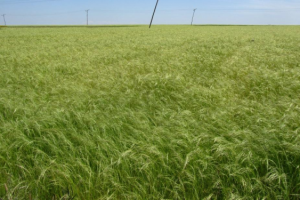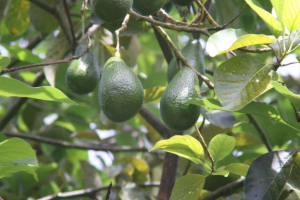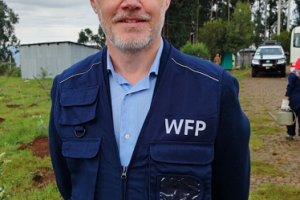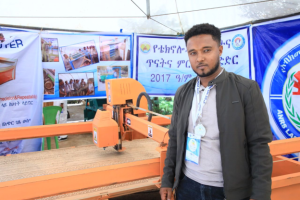ADDIS ABABA (FBC) – April 4, 2020 Convened by President Cyril Ramaphosa, leaders of Ethiopia, Rwanda, Senegal, Egypt, Zimbabwe, DRC and Kenya held teleconference yesterday. African Union Commission Chairperson, Moussa Faki Mahamat, Director-General of the World Health Organization Dr. Tedros Adhanom, and Director of the Africa Center for Disease Control, Dr. John Nkengasong, also attended the discussion. After the discussion, Prime Minister Dr. Abiy Ahmed said on Twitter “with updates on actions taken and challenges the continent faces, we also discussed the need for collective leadership to circumvent the adverse effects of the COVID-19 crisis.” “A coordinated African approach is critical as we pursue economic responses with global partners,” he added. The Prime Minister also extended his gratitude to French President Emmanuel Macron, for joining “our call, for continuing to be a champion for Africa in these challenging times.”
African Ministers of Finance held a second virtual meeting, against the backdrop of rising COVID-19
African Ministers of Finance held a second virtual meeting, against the backdrop of rising COVID-19 cases in Africa which could spiral out of control unless measures are put in place now to curtail its spread, according to United Nations Economic Commission for Africa. The meeting was hosted by Vera Songwe, Executive Secretary of the Economic Commission for Africa, and co-chaired by Ministers Tito Mboweni of South Africa and Ken Ofori-Atta of Ghana. Countries shared their experiences and also discussed opportunities for mutual support. While acknowledging the commendable policy measures taken by governments, the Ministers underscored that Africa’s economy is facing a deep and synchronized slow down and could take up to three years to turn the corner. They stressed the need to take “all possible actions to slow down and bring the spread of COVID-19 under control in the short term but acknowledged this is an uphill battle. Ministers called for joint protocols on border closures to allow for trade and humanitarian corridors. They underscored that immediate focus must remain on the health and humanitarian front. There is a need to continue the awareness raising, testing, social distancing. Many ministers joined the meetings with masks. They called also for debt relief from bilateral, multilateral and commercial partners with the support of the multilatera and bilateral financial institutions such as the IMF, the WBG, and EU, to ensure that African countries get the fiscal space required to deal with the COVID-19 crisis. The call for debt relief, it was emphasised, should be for all of Africa and should be undertaken in a coordinated and collaborative way. They called for a special purpose vehicle to be created to deal with all sovereign debt obligations. Substantial drops in revenue from commodity price drops coupled with increasing costs of imports is putting pressure on both inflation and the exchange rate. Given that the global economy has entered a period of a synchronized slow down, with recovery only expected after about 24 to 36 months, development partners should consider debt relief and forbearance of interest payments over a 2 to 3-year period for all African countries, LICs and MICs alike. The Ministers acknowledged the importance of the private sector for job creation and for the recovery effort. They called on DFIs to support private sector at this difficult time. In addition, since Africa is a net importer of pharmaceutical products, enabling local continental production could serve to protect some jobs and guarantee the supply of essential medicines during the crisis. Over 54 countries have banned exports of pharmaceutical products and the Ministers called for an end to these procedures. The Ministers discussed the enormous losses being incurred in the airline and hospitality industry. They called for the protection and preservation of the African Airline, logistics and tourism industry including by advocating for a stay on interest, lease and debt payments. This is an important job creating sector for millions of Africans and must be protected. The Ministers also agreed to set up a meeting for countries affected by transport and tourism losses due to the pandemic, in order to better plan on policies to combat the losses. The Ministers welcomed the use of technology such as mobile phones to support awareness raising, identify communities in need and create accountability and governance mechanisms around the use of the stimulus. They asked the ECA to work with telecommunications companies to design a system to support these objectives.
BY MEHARI BEYENE
Africa Development Bank bestowed social bond issue
The African Development Bank received on 30 March 2020 an award for its successful one billion Norwegian krone (NOK) social bond issued in 2019. This Environmental Finance 2020 bond award was given by an independent panel comprising 30 of the world’s largest green, social and sustainability bond investors, according to Africa development Bank. “It is inspiring to observe how the African Development Bank sources global capital to finance, lead and develop a strong platform for inclusive and environmental growth across Africa. We know from many of our investors that the ability to participate in Africa through Africa Development Bank’s triple-A rating is highly appreciated and we look forward to many more transactions like this,” said Christopher Flensborg, Head of Climate and Sustainable Finance in Large Corporates & Financial Institutions at Skandinaviska Enskilda Banken, a Swedish financial group. The African Development Bank bond issue was the first social bond ever launched in the Norwegian market, and the Bank’s first transaction in Norwegian Krone. It was launched in April 2019, as part of a dualtranche social bond and green bond, placed on the Norwegian and Swedish markets. The dual transaction drew strong interest from dedicated socially responsible investor portfolios as well as those who strongly weight environmental, social and governance considerations in their investment strategies. The proceeds from this social bond issuance are being directed toward poverty reduction, job creation, and inclusive growth. Since 2017, the Bank has launched nearly 5 billion USD worth of such instruments denominated in US dollars, euros and Norwegian krone. In 2018, the Bank was recognized as “Second most impressive social or sustainability bond issuer” at the Global Capital Socially Responsible Investments Awards. The Environmental Finance 2020 bond award followed the 27 March announcement that the Bank had raised a record 3 billion USD from its Fight COVID-19 social bond, the proceeds of which will fund public and private efforts to tackle the viral pandemic in Africa. Fight COVID-19 is the largest social bond ever issued in capital markets. “We are honored to receive this recognition for this first ever issued social bond in the Norwegian market. This Norwegian krone issue reinforces the Bank’s High 5 operational focus which is aligned with the Sustainable Development Goals. Our Social bond framework allows us to attract investors whose interests are aligned with those of our development mandate,” said Bajabulile Tshabalala, acting Senior Vice President of the African Development Bank. “We are delighted to be honored by market leaders as we devote our efforts towards the economic and social development of the African continent. The mission of the African Development Bank is to combat poverty and improve lives and social bonds allow us to showcase the impact of our social projects in Africa,” said Hassatou Diop N’Sele, Treasurer of the African Development Bank Group. The Bank is rated AAA by all four major credit rating agencies, with a stable outlook.
BY MEHARI BEYENE
The Bank assists WHO to mitigate COVID-19
The Board of Directors of the African Development Bank approved 2 million USD in emergency assistance for the World Health Organization to reinforce its capacity to help African countries contain the COVID-19 pandemic and mitigate its impacts, according to Africa Development Bank. The grant, which is in response to an international appeal by the World Health Organization, will be used by the world body to equip Regional Member Countries to prevent, rapidly detect, investigate, contain and manage detected cases of COVID-19. It is one part of several Bank interventions to help member countries address the pandemic which, while slow to arrive in Africa, is spreading quickly and is straining already fragile health systems. Specifically, the World Health Organization Africa region will use the funds to bolster the capacity of 41 African countries on infection prevention, testing and case management. World Health Organization Africa will also boost surveillance systems, procure and distribute laboratory test kits and reagents, and support coordination mechanisms at national and regional levels. This grant “will enable Regional Member Countries to put in place robust containment measures within 48 hours of COVID-19 case confirmation and also support the World Health Organization Africa Region to disseminate information and increase public awareness in communities,” said the Bank’s Human Capital Youth and Skills Development Department. The grant will contribute toward a 50 million USD World Health Organization Preparedness and Response Plan, which other partners including the United Nations system, are also supporting. It is estimated that Africa will require billions of dollars to cushion the impact of the disease as many countries scramble together contingency measures, including commercial lockdowns, in desperate efforts to contain it. Globally, factories have been closed and workers sent home, disrupting supply chains, trade, travel, and driving many economies toward recession. The Bank Group is expected to unveil a financial assistance package that will enable governments and businesses to undertake flexible responses to lessen the economic and social impact of this pandemic. The Bank raised an exceptional 3 billion USD in a three-year social bond, the proceeds from which will go to help alleviate the economic and social effects of the pandemic. It is the largest dollardenominated social bond launched in international capital markets to date.
BY MEHARI BEYENE





